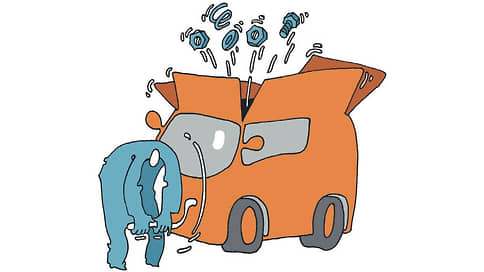Assets of Canadian Magna in Russia were bought by an unknown company
[ad_1]

Magna International, a manufacturer of components for the automotive industry, sold Russian assets for $15 million in early August. In the Russian Federation, its plants worked mainly with foreign automakers that suspended work or left the country altogether – this led to downtime at Magna sites as well. The buyer of at least part of the assets was the E-mobile company, unknown on the market, which may be associated with the former head of UVZ Oleg Sienko. The former top management remains at the factories for now, which, according to Kommersant’s sources, will help resume production even without technology transfer.
On August 1, Magna International completed its exit from investments in the Russian Federation for $15 million, according to the company’s report for the second quarter. The deal resulted in a loss of approximately $15 million. Magna previously wrote off $376 million in the second quarter of 2022 amid the suspension of factories in Russia.
Magna’s assets in the Russian Federation included production sites in the largest auto clusters – St. Petersburg, Nizhny Novgorod, Kaluga and Naberezhnye Chelny. The company supplied plastic, metal parts and seats to the largest car manufacturers in the Russian Federation, but after the crisis began, all of them were idle. In particular, these were seats for the Volkswagen, Skoda, Ford Transit lines, plastic parts for the same manufacturers, as well as Nissan, Peugeot, Citroen, Mitsubishi, Toyota, Mercedes and GAZ.
One of Magna’s subsidiaries, Piterform, received 88% of its revenue from the sale of components to the XMMR plant (before the crisis it produced Kia and Hyundai in St. Petersburg), which led to the suspension of production following the plant. Magna Sitting Rus (Naberezhnye Chelny) is in a similar situation, with 99% of its revenue coming from a single customer, probably Ford. Magna Automotive Rus (Nizhny Novgorod with branches in Kaluga and St. Petersburg) only recorded a decline in orders. In 2022, Magna reported that they see opportunities to resume production in the Russian Federation no earlier than 2024.
According to SPARK, at least four out of five Magna seating subsidiaries in Russia (Magna Seating Rus, Piterform, Magna St. Petersburg and Magna Seating Nizhny Novgorod) have moved to E-mobile.
In it, 99.99% belongs to Olga Savelyeva, another 0.01% belongs to Oleg Tenitsky (since April 2023). Railway transportation is declared as the profile of “E-mobile” (formerly “Delonge”). Until 2017, the company was owned by Igor Timoshin, ex-adviser to the head of Uralvagonzavod (UVZ) and former owner of Lesance LLC. According to a number of Kommersant’s interlocutors in the industry, the deal could be carried out in the interests of a large buyer, who, under the sanctions, decided not to advertise himself. Another source of Kommersant says that we are talking about the ex-head of UVZ Oleg Sienko.
Advance Capital acted as financial advisor on the deal.
Magna Automotive Rus, which specialized in plastic parts, including bumpers, instrument panels, spoilers and more, still has Magna as a shareholder. Kommersant sent questions to Magna about the buyer of assets and technology transfer, but did not receive a response.
An interlocutor of Kommersant in the auto components market says that while maintaining a team that knows the production processes, it is realistic to resume production: “If there is no team, then even if you have customers, you won’t be able to do anything.”
He adds that, for example, resuming the production of seats is a matter of finding suppliers, which may also be in China. “The hardest part is that it has a direct impact on safety, even seat sleds are complicated and expensive – if anything goes wrong it will be a disaster. Especially in the case of heating, which needs to be built in and tested separately, ”explains the interlocutor of Kommersant.
Automotive analyst Vladimir Bespalov notes that in the next two or three years it will become clear which models from China will be produced in the Russian Federation, including within the framework of existing projects. And in this case, component manufacturers will be able to reorient their products to them, he believes. The purchase of the production of auto components, which were in demand by the market and will be potentially in demand, is attractive to investors, since they are now sold at a discount, he continues. Even if they cannot be loaded with the same or similar products, then in terms of a discount, this is a good deal to acquire a ready-made site with a ready-made infrastructure that can be used in one way or another.
[ad_2]
Source link





